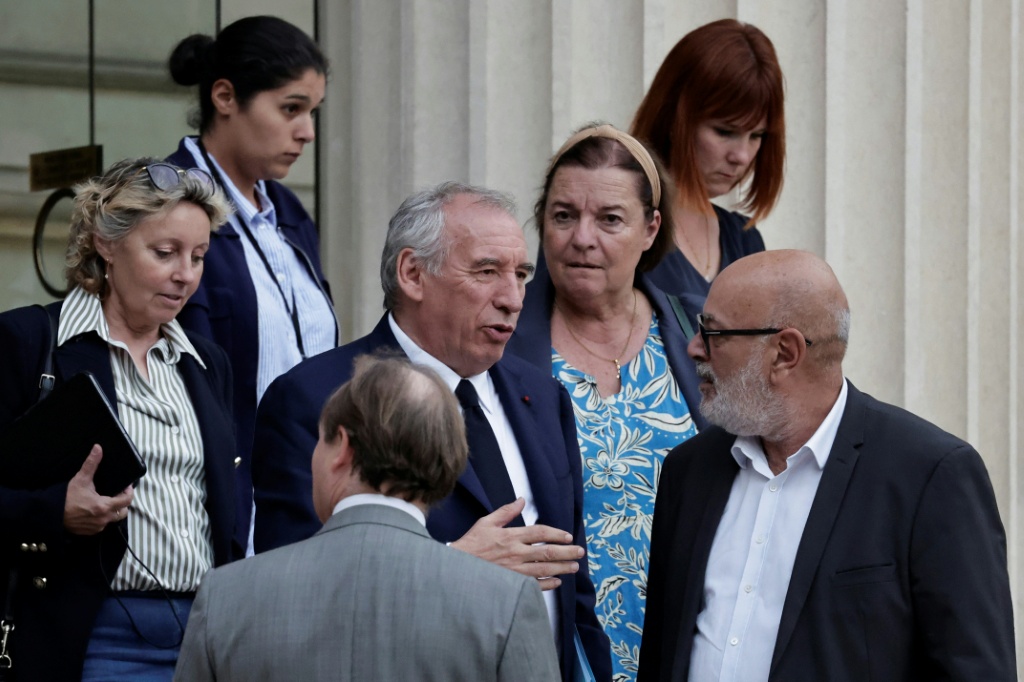
The French government has fallen: Prime Minister François Bayrou lost a vote of confidence in the National Assembly on Monday by 194 votes to 364, as National Assembly Speaker Yaël Braun-Pivet announced this evening. The vote of confidence, initiated by Bayrou himself, was prompted by a dispute over €44 billion in budget austerity measures.
President Emmanuel Macron intends to appoint a successor "in the coming days," the Élysée Palace said. According to sources close to him, Bayrou planned to submit his government's resignation on Tuesday. The government will remain in office in a caretaker capacity until a successor is appointed. Bayrou's nine-month term in office was also marked by an abuse scandal at a Catholic school with which he had close ties.
Shortly before his ouster, Bayrou once again campaigned for his austerity budget in dramatic terms in the National Assembly. "You have the power to overthrow the government, but you do not have the power to erase reality," he said in his government statement. "The country's survival is at stake," he added.
Last-minute talks failed because Bayrou was unwilling to make major concessions. In particular, his proposal to cancel two public holidays had sparked discontent among large sections of society. The Socialist Party had presented a counter-budget with savings of €22 billion, to which large companies and the wealthy were to be increasingly involved.
Bayrou had invited the outgoing cabinet to a reception that evening. In several cities, including Nantes, Pau, and Rennes, government critics also called for "farewell parties for Bayrou," possibly a foretaste of larger blockades on Wednesday. A new protest movement has been brewing on online networks in recent weeks, seeking to vent its anger at the government with unusual actions, such as blockades of train stations and consumer abstinence. Observers fear riots.
Some unions are already calling for strikes on Wednesday, and most unions are planning their own day of action on September 18. Macron has so far ruled out new elections. According to polls, the right-wing populist Rassemblement National (RN) could gain further ground in a snap election. However, a clear majority is unlikely to emerge.
After the vote, left-wing populist party leader Jean-Luc Mélenchon reiterated his demand for Macron's resignation – a demand he has so far rejected. Macron's term of office runs until 2027, after which he cannot run again. Recent polls show right-wing populist parliamentary group leader Marine Le Pen or RN party leader Jordan Bardella ahead – depending on which of the two ultimately runs. Le Pen is currently prevented from doing so by a court ruling, but hopes for the appeal process to begin in early 2026.
So far, there is no favorite for Bayrou's successor. Among those offering their services from the left-green camp is Socialist Party leader Olivier Faure. However, his appointment is considered unlikely. Instead, Justice Minister Gérald Darmanin, Finance Minister Eric Lombard, and Defense Minister Sébastien Lecornu, all of whom are in Macron's camp, are being considered.
Labor Minister Catherine Vautrin has also been mentioned. France has only had two women head of government to date: Edith Cresson in 1991/92 and Elisabeth Borne from 2022 to 2024. A caretaker government can continue to deal with ongoing matters. However, new legislative proposals or decisions that would affect the incoming government are not possible.